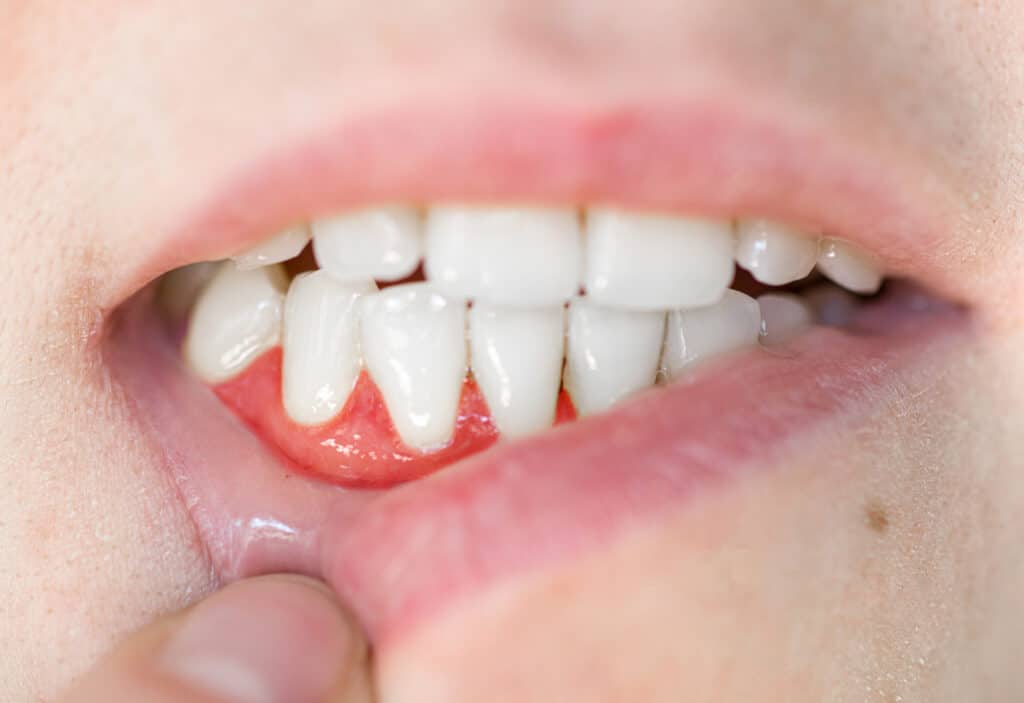
Health is an intricate web of interconnected systems in which one factor influences many others. In the quest to achieve greater overall well-being, we often focus on specific areas of our health, such as diet, exercise, or mental health, while neglecting one crucial piece of the puzzle: oral health. In this blog post, we’ll explore the ways oral health and overall health are profoundly connected and give tips to optimize your overall level of wellness.
Exploring the Link Between Oral Health and Overall Health
Oral health and overall health are linked in complex and often underestimated ways. New research has emerged showing that poor oral health can have far-reaching consequences, affecting various parts of the body. Let’s get into some of the specific ways in which oral health and overall health are connected.
Cardiovascular Health
Your heart and oral health share an especially close connection. Poor oral hygiene and gum disease have been linked to an increased risk of heart disease. Bacteria from inflamed gums can make their way into the bloodstream, potentially contributing to the formation of arterial plaques. Because these plaques restrict blood flow, they can result in heart-related problems, including coronary artery disease.

Diabetes Management
Maintaining good oral health is particularly vital for individuals with diabetes. Gum disease can increase blood sugar levels, which in turn worsens other complications of diabetes, including problems affecting the heart, eyes, blood vessels, kidneys, and nerves.
On the flip side, uncontrolled diabetes can lead to an increased risk of developing gum disease. These two conditions are part of a vicious cycle, highlighting the importance of regular dental check-ups for patients with diabetes.
Respiratory Health
Your oral health can also impact your respiratory system. Harmful oral bacteria can be inhaled into the lungs, potentially causing or worsening respiratory conditions such as chronic obstructive pulmonary disease (COPD) and pneumonia. Practicing good oral hygiene can play a part in reducing these risks.
Pregnancy and Birth Outcomes
While expectant mothers are carefully preparing for the arrival of their new baby, they should also pay close attention to their oral health. The hormonal changes that come with pregnancy can make gums more susceptible to inflammation, and poor oral health during pregnancy has been linked to preterm birth and low birth weight. To ensure the health of both mom and baby, it’s essential for pregnant women to maintain a strict oral care regimen and attend regular check-ups at the dentist’s office.
Cognitive Health
Some studies have suggested that poor oral health — gum disease in particular — may be associated with an increased risk of Alzheimer’s disease and cognitive decline. More research needs to be done to fully understand this link, but researchers believe it may have something to do with inflammation.
Preventing Systemic Health Complications
The good news is that there are simple steps you can take to improve your oral health and decrease your risk of certain systemic health complications. Because oral health and overall health are intrinsically connected, your dentist plays a vital role in your whole-body well-being, not just your dental needs.
Regular Dental Check-Ups
Preventive dental care, which includes professional cleanings and exams, is the foundation of good oral and systemic health. Regular check-ups with your dentist allow them to identify potential systemic health concerns before they have a chance to escalate, along with detecting and treating dental issues. Dentists can often spot signs of systemic conditions such as diabetes, heart disease, and certain types of cancer.
Gum Disease Management
Gum disease, also known as periodontal disease, is not just a significant oral health concern; it can also have major systemic ramifications. When it comes to gum disease, early intervention is essential. Preventing the progression of this condition can reduce your risk of systemic health complications. Your dentist can diagnose gum disease at various stages and recommend treatments.

Personal Oral Care
The importance of developing good oral hygiene habits cannot be overstated. Brushing, flossing, and using an antimicrobial mouthwash are key components of maintaining your oral health. Talk to your dentist for guidance on the most effective techniques and products for your unique needs.
Nutrition and Lifestyle
Nutrition and lifestyle choices have a substantial impact on both oral and systemic health. A balanced diet rich in essential nutrients, along with regular exercise and stress management, contributes to an enhanced quality of life.
Improve Both Your Oral Health and Overall Health
At the office of Dr. Eric Felt, we are committed to improving both the oral health and overall health of each of our patients. To see what we can do for you, schedule an appointment with us today.


